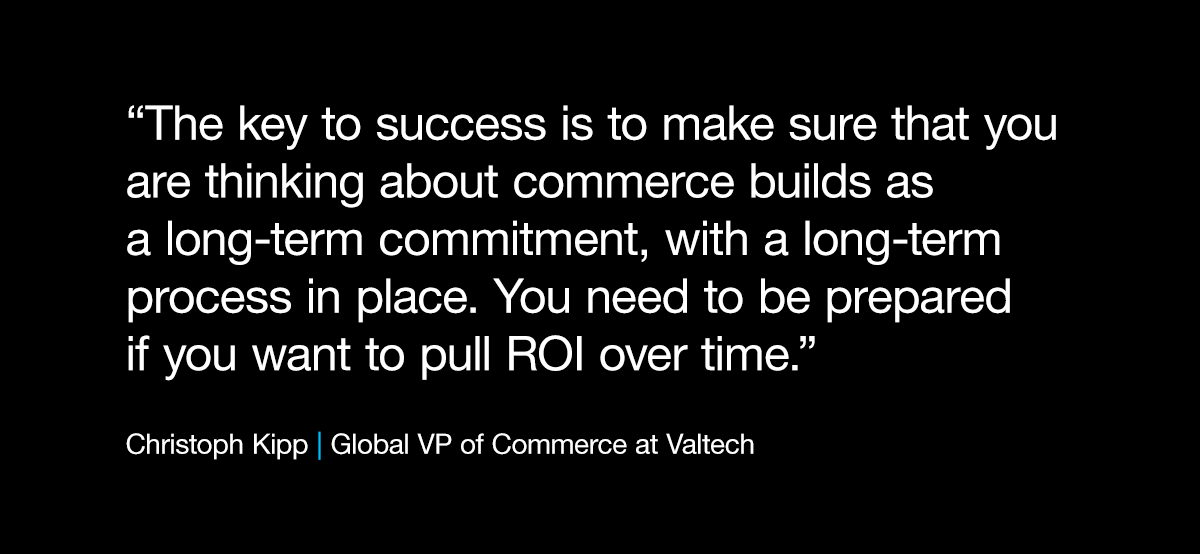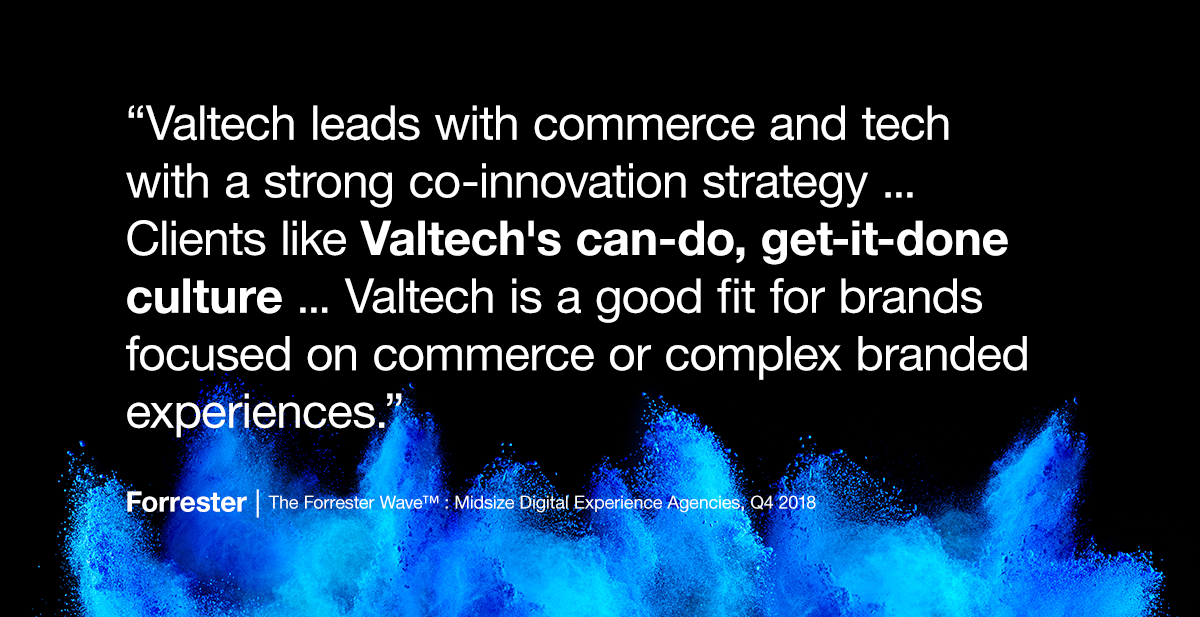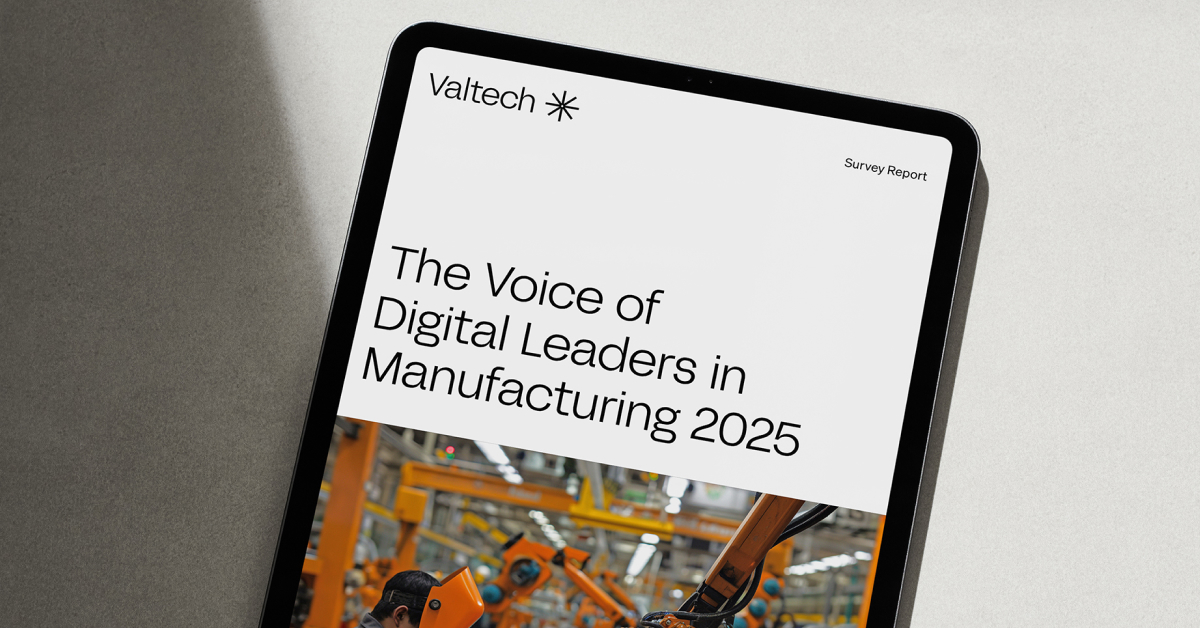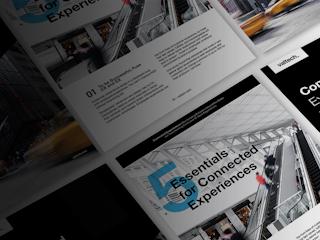Commerce platforms are never really finished. The very nature of commerce is that it’s constantly evolving—the COVID-19 crisis has made that even more evident. So, if your business revolves around a commerce function, that means you need to be prepared to continuously improve and evolve too.
The best way to avoid the pitfalls and to drive for success is to make sure that you’re thinking long term from the start. You need to have a long-term process in place, not just a long plan. It’s important to constantly try things, to measure how they perform and then to adapt to the insights gained. Think far beyond the project itself, think beyond the two months post platform delivery, and start thinking about what your platform will need to look like in six, 12, 24 months’ time.
Whilst we don’t know what the “best” commerce platform will look like in 12 or 24 months, we can make sure that we are well positioned to respond when that time comes.
Supporting Clients Through Tech Run
Westcon had two primary goals in mind when they started out: a) to grow ecommerce sales by creating a transactional site and b), to optimize internal tools to streamline internal processes such as creating quotes, creating orders and delivering the best customer experience.
We generally come across clients at two stages of a commerce build. Firstly, there are the clients like Westcon who we have worked with from the beginning. We’ve shaped strategy, designed solutions and built a long-term partnership. Then there are the clients who have already built platforms but are looking for run support—someone to pick up the platform and run it over the coming months or years.
The concept of “tech run” will be familiar to most. It’s what would traditionally have be referred to as the support and maintenance phase that happens once a project has been delivered. In the case of commerce, this is a crucial element that shouldn’t come as an afterthought. With the pace of change in commerce today, a platform that was built two months ago might already be rapidly losing market relevancy.

There are a couple of options available to businesses at this point, and the direction you decide to take is largely dependent on the nature and technical maturity of your company. True tech run set ups are extremely rare; it’s a set up that requires a wide variety of technical competencies—analytics, software upgrades, on-premise to cloud migrations and development requirements. The more complex the platform (which commerce platforms often are), the more systems are involved, and you need to make sure that you have a team that is adept at getting the best out of the technology.
1. You Can Build Your Own In-House Function
Of course, this is easier for some than others. For example, a B2B manufacturer specialising in light fittings might not find it feasible to build out a large in-house IT function—not only from an operational perspective, but also because it relies on an ability to hire talent in an extremely competitive market.
2. You Can Partner With an Agency to Manage It for You
Remember that your customers ultimately don’t care why the platform has gone down; what they care about is that it’s back up again asap. From a business impact perspective, you need to make sure that it’s back up before it impacts your bottom line.

The crucial difference between a commerce platform and other platforms is that you need to be able to make changes and updates with a much higher frequency. The releases can be daily, hourly, or even (for someone like Amazon), by the minute. You need to be sure you can deliver that, and that’s the point that you need to consider a combined offering.
A Long-Term Plan is Needed Regardless
When it comes to the long-term view, it’s incredibly important to us that we offer that combined tech run offering to our clients. We combine support and operations with continuous development (maintenance) and evolution. That means that not only can you be confident that your platform is working as it should and that any issues are dealt with immediately, it also means that it will get better over time too.
This process of continuous improvement is driven by a stringent focus on analytics, market trends and tech expertise. It’s about making sense of the platform data and innovating as we go. It’s about a test, learn and iterate approach that lies at the heart of everything we do as an agency.
If you are about to embark on a large-scale commerce programme—whether you decide to tackle it alone, or with a partner—the best advice that we can give you is to take the long-term view on what you are trying to achieve. Be methodical. In a rapidly changing market with customers who demand seamless experiences as standard and huge players like Amazon to compete with, you need to make sure you’re getting it right, right now and for all of the months ahead.
The Valtech Commerce team works alongside some of the world’s best-known brands to deliver best-in-class commerce solutions to transform businesses for the long term. With 3500+ specialists in 45 offices across 16 countries, whatever you need to achieve, our teams are here to help you succeed.










